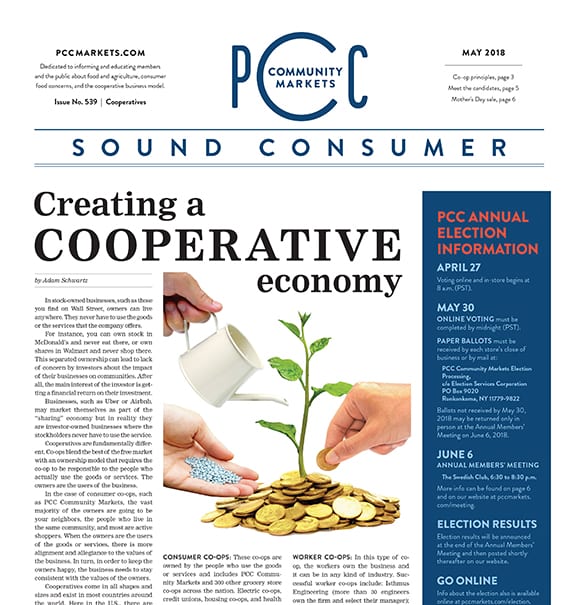Creating a cooperative economy
Co-ops blend the best of the free market with an ownership model that requires the co-op to be responsible to the people who actually use the goods or services. The owners are the users of the business. In the case of co-ops like PCC, the vast majority of the owners are going to be your neighbors, the people who live in the same community and most are active shoppers.



